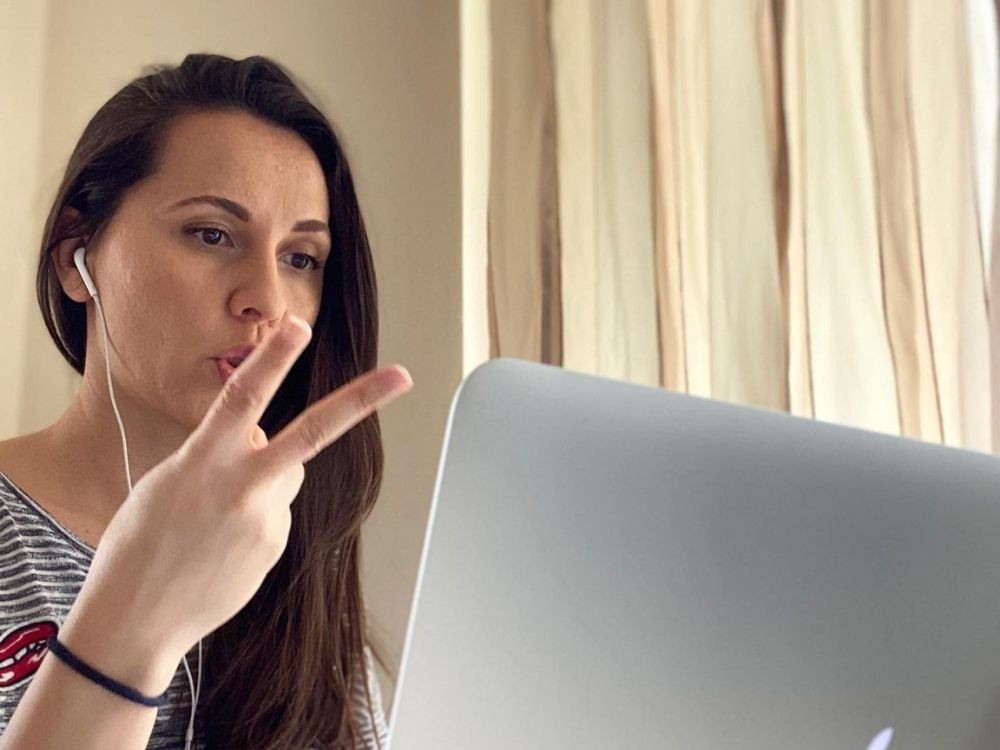Today's world is inextricably linked to technology and more and more children are spending time in front of electronic devices, whether they use them for learning or entertainment. This is also shown by statistics in Bulgaria, as data for the past two years are alarming.
"According to the latest data, 83% of Bulgarian children spend their time watching a display device actively or passively for at least 2 hours a day during weekends, as during the week they spend 48% of their time in front of the screen, which exceeds the recommended pediatric dose," says Yana Ilcheva. speech therapist, consultant and therapist who works with children with developmental problems.
Delayed speech, emotional disorders, impaired concentration, frequent cases of violence - these are just some of the problems that arise as a result of the use of electronic devices by children. Is the situation really that serious?

"Yes, all this is an interconnected complex, the foundations of which are laid at an early age. The display slows down the development of meaningful speech, communicative behavior cannot be developed. For children, real playing is extremely important as it gives life experience, develops imagination, emotional maturity and awareness," Yana Ilcheva says and gives examples from her practice of the opposite: a child who can not turn the pages of a book, but slides fingers on the page, or a child who has not built their identity and likens themselves to a cartoon character. It is no coincidence that in recent years such terms as Electronic Screen Syndrome and ‘generation of alienation’ have emerged.”
"Excessive use of electronic screens results in over-stimulation of the nervous system, changes in the biochemical processes in the brain and stops building of the right neurological connections. Working memory as well as creative thinking do not develop well. Unfortunately, more and more children have cognitive and learning difficulties," Yana Ilcheva says.

Last year, children in Bulgaria finished school remotely and at the moment upper-grade students still study online. How will distance learning affect Bulgarian children?
"The consequences are yet to be explored. Isolation and screen time are most detrimental to first graders and children with developmental problems. Learning difficulties are also increasing because students are lagging behind. In terms of social skills, I think they will catch up by going back to class. In the future, difficulties in concentration, behavior, auditory attention, fine motor skills will be more common. In my opinion, the consequences will be mostly psychological and educational," Yana Ilcheva says.
Technologies limit sensory integration, live connection, the sensation of real communication, movement. But they can also be an additional support when they are purposefully used and dosed:
"There are many educational channels and applications that facilitate the learning process. They can also be used for alternative communication. We cannot isolate children completely, we are all dependent on technology in some form. However, technology should not and cannot replace real life events, communication, practical skills and needs," Yana Ilcheva says in conclusion.

English: Alexander Markov
Photos: archive
From today until Sunday, Samokov is hosting the Raspberry Festival and the National Exhibition of Raspberry Producers, BTA reports. The event provides an opportunity for growers to showcase their varieties and innovative equipment, including..
Summer in Bulgaria is an exciting time, not only for tourists. June and July are intense months for young people finishing secondary school and about to take the next step in their lives by choosing a university and a career path. In recent years,..
Colourful, ethereal, and subtle, butterflies are everywhere around us – day and night, in the city and in the countryside. However, zoologists warn that their butterfly dance has become increasingly rare in recent years in European countries , including..
Slovenia becomes the first Eastern European country to legalize assisted dying Slovenia’s parliament has approved a law to allow assisted..
Bulgaria has appeared in a ranking by Italian media Il Messaggero, which recommends 10 of the most affordable and low-budget seaside..

+359 2 9336 661
